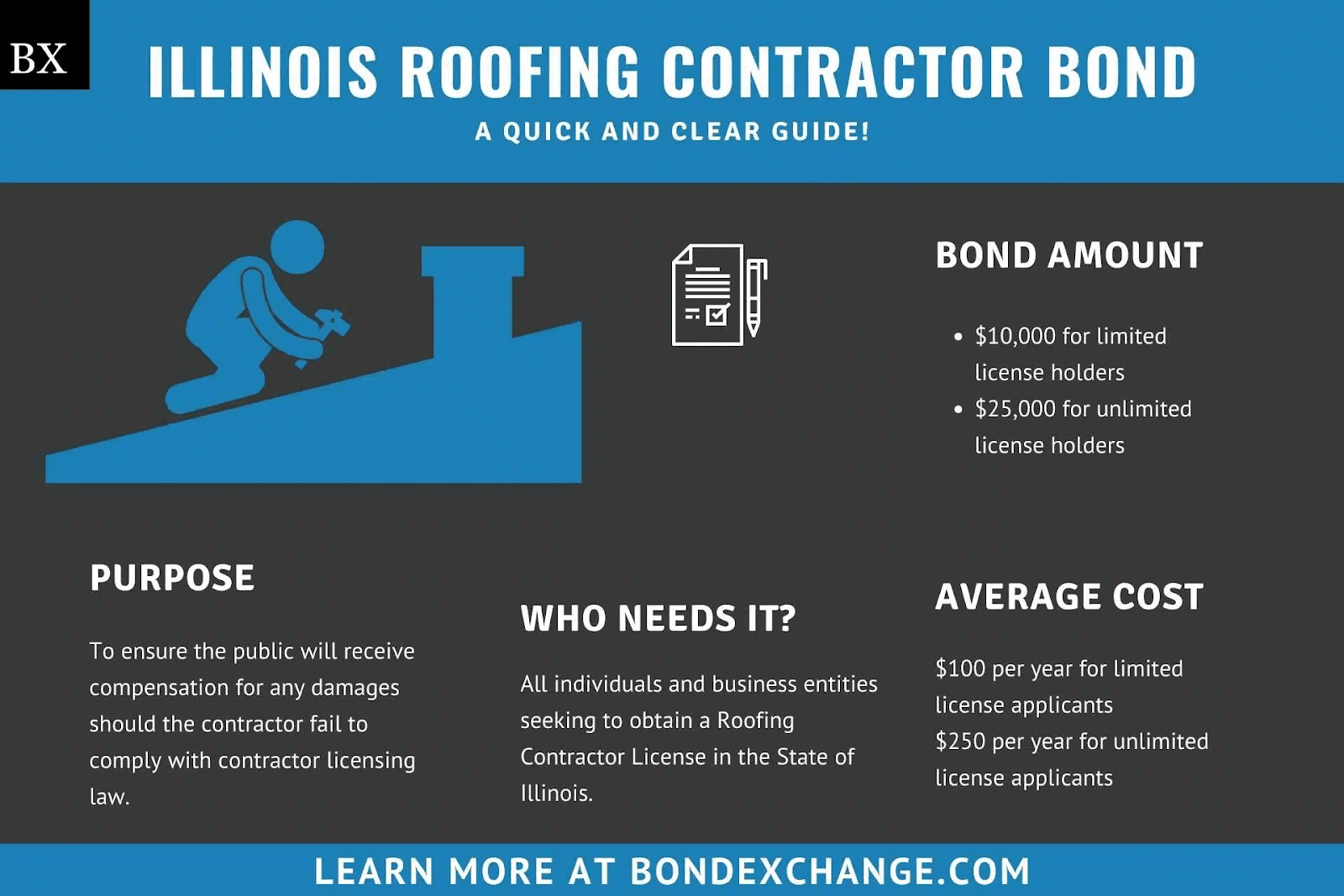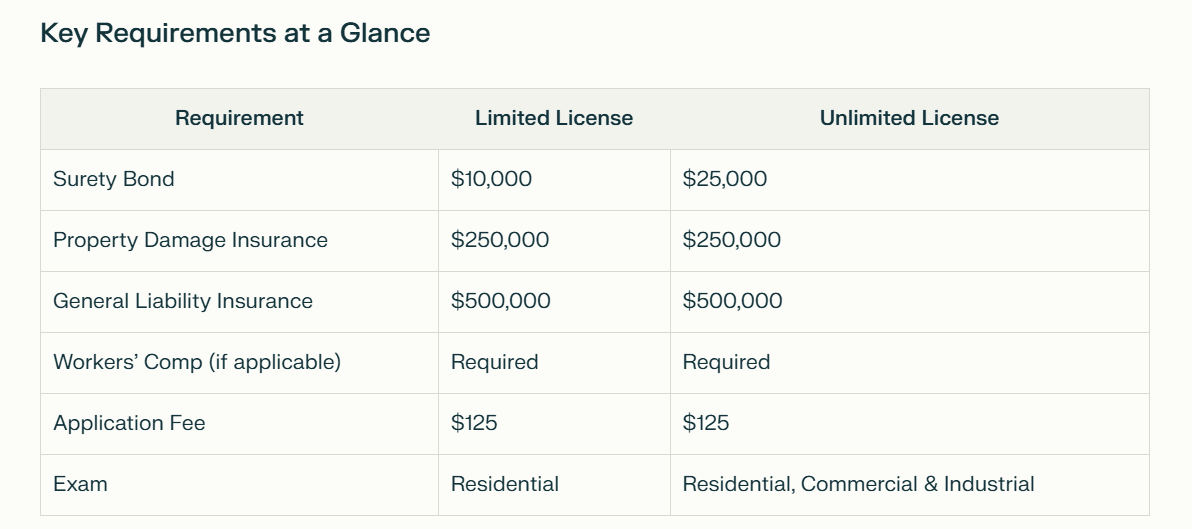business resources
How to Get Your Roofing License in Illinois: A Guide for Aspiring Contractors
23 Apr 2025, 4:10 pm GMT+1
How to Get Your Roofing License in Illinois: A Guide for Aspiring Contractors
Starting a roofing company or becoming a licensed roofing contractor in Illinois is a promising path with strong demand and growth potential. However, Illinois has strict licensing requirements to ensure safety, quality, and consumer protection. If you’re planning to launch your own roofing business or work as a qualifying party for a roofing company, understanding the licensing process is essential. This comprehensive guide details every step, requirement, and key statistic you need to know to successfully obtain your Illinois roofing license.
Why Get Licensed? The Importance of Roofing Licensure in Illinois
Illinois law mandates that all roofing contractors, whether working on residential or commercial projects, must be licensed by the Illinois Department of Financial and Professional Regulation (IDFPR). This protects consumers and ensures contractors meet professional standards. In 2023, Illinois reported over 2,500 active licensed roofing contractors, reflecting the state’s robust regulatory environment and the industry’s scale.
Types of Roofing Licenses in Illinois
Illinois offers two main types of roofing contractor licenses:
- Limited Roofing License: For residential properties with 8 units or less.
- Unlimited Roofing License: For all residential, commercial, and industrial properties, regardless of size.
Bond Amounts Required for Illinois Roofing Licenses

Step-by-Step: How to Get Your Illinois Roofing License
1. Meet the Basic Requirements
- Age: You must be at least 18 years old.
- Business Entity: Decide your business structure (sole proprietorship, partnership, corporation, or LLC).
- Insurance: Obtain property damage insurance (minimum $250,000) and general liability insurance (minimum $500,000). If you have employees, you must also have workers’ compensation insurance.
- Surety Bond: Secure a $10,000 bond for a Limited License or $25,000 for an Unlimited License.
2. Designate a Qualifying Party
Every roofing company must have a “qualifying party”—the individual responsible for supervising operations and ensuring compliance. This person must pass the required state exam and be actively engaged in the business’s daily activities.
3. Complete the Application
- Application Form: Download and complete the official application from the IDFPR website.
- Supporting Documents: Include proof of insurance (using the RF-INS form), your bond (BD-LRF for limited or BD-URF for unlimited), and any required business documentation.
- Application Fee: Pay the $125 non-refundable fee (online or by mail).
4. Pass the Illinois Roofing Exam
The qualifying party must register for and pass one of the following exams:
- Residential Exam (Limited License): Covers residential roofing.
- Residential, Commercial & Industrial Exam (Unlimited License): Covers all property types.
The exam tests knowledge in safety, roofing materials, installation methods, and business practices. Passing scores are required for licensure.
5. Submit Your Application
Mail your completed application, supporting documents, and payment to:
Illinois Department of Financial and Professional Regulation
Attn: Division of Professional Regulation
P.O. Box 7007
Springfield, Illinois 627911
Allow up to eight business weeks for processing.

Maintaining Your License
- Renewal: Licenses expire on December 31st of every odd-numbered year, regardless of issue date. Renewal requires updated insurance and bond documentation and payment of renewal fees.
- Active Qualifying Party: Your license becomes inoperable if you do not have an active qualifying party. You must designate a replacement if the current qualifying party leaves.
- Compliance: Operating without an active license is prohibited and can result in penalties.
Frequently Asked Questions
Q: Can I upgrade from a Limited to an Unlimited License?
A: Yes, but you must meet the Unlimited License requirements and pass the broader exam.
Q: What happens if my license lapses?
A: You must stop all roofing operations until you renew and reactivate your license.
Q: How much does the bond cost?
A: The annual premium varies, but typically starts at $100/year for Limited and $250/year for Unlimited licenses.
Additional Resources
Getting your Illinois roofing license is a multi-step process that ensures only qualified, insured, and bonded professionals operate in the state. By following the steps above by meeting insurance and bond requirements, designating a qualifying party, passing the state exam, and submitting a complete application, you’ll be well on your way to joining the ranks of Illinois’s licensed roofing professionals. For more detailed guidance, resources, and exam preparation, visit the Illinois Roofing Institute to help you pass your roofing exam in Illinois.
Share this
Contributor
Staff
The team of expert contributors at Businessabc brings together a diverse range of insights and knowledge from various industries, including 4IR technologies like Artificial Intelligence, Digital Twin, Spatial Computing, Smart Cities, and from various aspects of businesses like policy, governance, cybersecurity, and innovation. Committed to delivering high-quality content, our contributors provide in-depth analysis, thought leadership, and the latest trends to keep our readers informed and ahead of the curve. Whether it's business strategy, technology, or market trends, the Businessabc Contributor team is dedicated to offering valuable perspectives that empower professionals and entrepreneurs alike.
previous
Compulsive vs Impulsive Disorders: Where Do We Draw the Line?
next
What Kind of Products are Made with Industrial Sewing Machines?